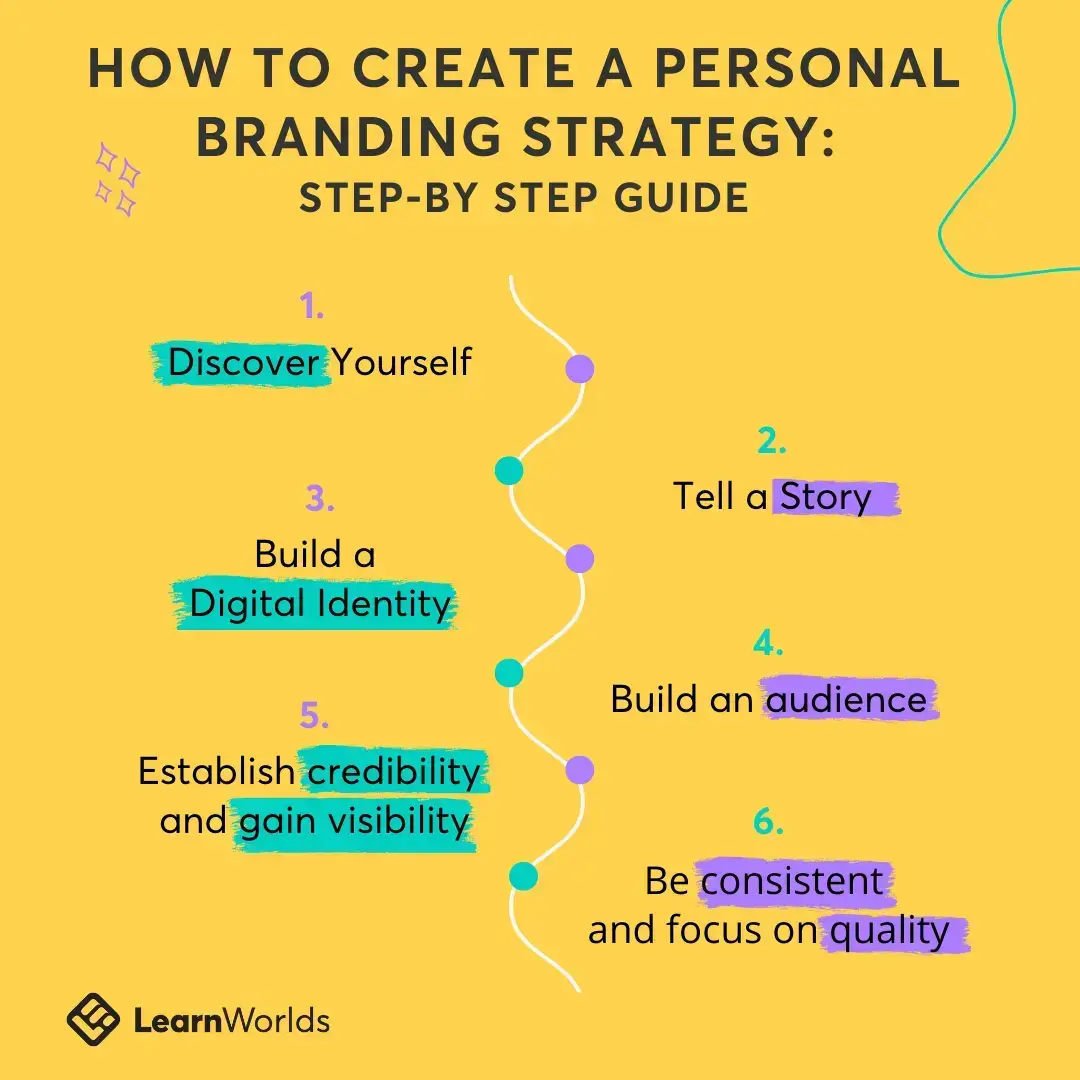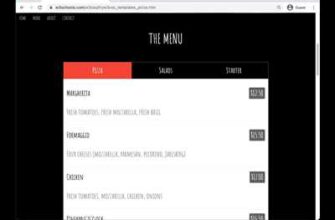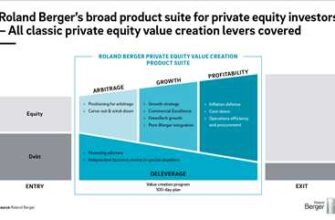
In today’s modern and competitive business world, having a strong personal brand is vital. It’s not a matter of luck or accident – it’s something that you can create intentionally. Building a personal brand allows you to showcase your unique personality, strengths, and passions to the world. Whether you are an entrepreneur, freelancer, or someone looking to advance in their career, personal branding is the key to standing out in the market.
But how do you start building your personal brand? What are the steps you need to follow? Well, you’re in luck because in this article, we will provide you with 10 practical tips on how to create an impressive personal brand online. By following these tips, you will not only attract more followers and customers, but also open yourself up to a world of opportunities and connections.
1. Identify your niche and target audience: The first step in personal branding is to identify what you are passionate about and who your target audience is. This will help you focus your efforts and create content that resonates with your audience.
2. Be authentic and genuine: One of the most important aspects of personal branding is authenticity. Be true to who you are and don’t try to be someone you’re not. Authenticity will make your brand more relatable and marketable.
3. Create a consistent brand image: Consistency is key when it comes to personal branding. Make sure that your brand image, including your logo, color palette, and overall style, is consistent across all platforms.
4. Showcase your skills and strengths: Highlight your unique skills and strengths to differentiate yourself from the competition. Use platforms like LinkedIn to showcase your professional expertise and accomplishments.
5. Stay up-to-date with the latest trends: In order to stay relevant and attract a modern audience, you need to stay up-to-date with the latest trends in your industry. This will show that you are knowledgeable and innovative.
6. Engage with your audience: Building a personal brand is not just about creating content, but also about engaging with your audience. Respond to comments, answer questions, and be truly present in your online community.
7. Be mindful of your online presence: In the age of social media, it’s important to be mindful of what you post online. Make sure to review your online presence and remove anything that could be perceived negatively by potential employers or clients.
8. Build connections and network: Building a personal brand is not just about gaining followers, but also about building meaningful connections. Attend industry events, participate in online communities, and reach out to like-minded individuals.
9. Have a plan and set goals: Like any business venture, personal branding requires a plan and clear goals. Set realistic and achievable goals for yourself, and make sure to track your progress along the way.
10. Sprout and adapt over time: Personal branding is not a one-time thing. It’s a continuous process that requires effort and adaptation. Stay open to change, learn from your mistakes, and always be ready to sprout into a stronger and more impressive personal brand.
By following these 10 practical tips, you will be well on your way to creating a strong and compelling personal brand. Remember, personal branding is all about making yourself and your skills marketable in a crowded and competitive world. So, go ahead and start building your personal brand today!
- How to Build a Personal Brand: 10 Tips
- 3 practical tips to start building your personal brand
- 1 Play to your passions
- 2 Identify your strengths
- 3 Have a consistent plan
- Why is personal branding important
- Standing out from the crowd
- Relatability and authenticity matter to modern audiences
- Making stronger connections with your community
- What Is A Personal Brand
- How to create a marketable personal brand in 5 steps
- Sources
- Videos:
- How You Can Build A 7-Figure Personal Brand in 1 Year
How to Build a Personal Brand: 10 Tips
Building a strong personal brand is vital in today’s modern market. It’s all about creating a compelling image and standing out in a crowded crowd. Whether you’re building a personal brand for yourself or for business, these 10 tips will help you sprout your brand and attract a following of loyal audiences.
1. Identify Your Strengths: Take some time to identify your strengths, skills, and passions. What makes you unique and marketable? Knowing your strengths will help you create a brand that is authentic and genuine.
2. Define Your Branding: Determine what you want your personal brand to represent and the personality you want to portray. This will help you create a consistent and relatable image.
3. Have a Plan: Take the time to develop a clear plan for your personal branding. Outline your goals, target audience, and the steps you need to take to achieve success.
4. Be Consistent: Consistency is key when it comes to personal branding. Make sure your online presence and messaging are consistent across all platforms and channels. This will help build trust and credibility with your audience.
5. Create Compelling Content: Producing high-quality and compelling content is essential for building a strong personal brand. Share your knowledge, expertise, and insights to establish yourself as an authority in your field.
6. Connect with Others: Building connections and a sense of community is important for personal branding. Engage with your audience, interact with like-minded individuals, and collaborate with others to expand your reach.
7. Be Authentic: Authenticity is everything in personal branding. Be true to yourself and let your personality shine through. People are more likely to connect with and follow someone who is genuine.
8. Get Out There: Don’t just limit yourself to online platforms. Get out there and attend industry events, conferences, and networking opportunities. Meeting people face-to-face can leave a lasting impression and help grow your personal brand.
9. Understand Your Audience: Take the time to understand your target audience. Know their needs, interests, and preferences. This will help you tailor your messaging and content to resonate with them on a deeper level.
10. Follow the Nike Approach: Just do it! Building a personal brand takes time and effort. Don’t be afraid to take risks and put yourself out there. The most important thing is to start and keep going, even when things get tough.
In the end, building a personal brand is all about having a strong vision, being consistent in your efforts, and providing value to your audience. Implement these 10 tips and watch your personal brand grow stronger over time.
3 practical tips to start building your personal brand
When it comes to personal branding, starting is often the hardest part. However, with the following three practical tips, you’ll be on your way to building a strong and compelling personal brand.
| Tip 1: Identify your passions and strengths Before you can start building your personal brand, you need to know what you’re passionate about and what your strengths are. Take some time to reflect on what you enjoy doing and what you excel at. These passions and strengths will form the foundation of your personal brand and make you stand out from the crowd. |
| Tip 2: Create a plan Once you’ve identified your passions and strengths, it’s time to create a plan for how you will build your personal brand. This plan should include goals, strategies, and steps that you will take to establish yourself as a thought leader or expert in your field. Having a plan in place will help you stay organized and focused on your personal brand development. |
| Tip 3: Be authentic and consistent One of the most important aspects of personal branding is authenticity. Be yourself and let your personality shine through in everything you do. People are more likely to connect with someone who is genuine and relatable. Additionally, consistency is key. Make sure that your personal brand is consistent across all online platforms and interactions. This will help you build a strong and impressive personal brand. |
By following these three practical tips, you can start building your personal brand in a modern and effective way. Remember to play to your strengths, identify your passions, and have a plan in place. With authenticity, consistency, and a clear direction, you’ll be well on your way to creating a personal brand that stands out in the market.
1 Play to your passions
When it comes to personal branding, one of the most important things to keep in mind is why your passions matter in the context of building a personal brand. Your passions not only make you relatable and authentic, but they also give you a strong foundation to build upon.
Having a strong passion for something allows you to create content that is genuine and compelling. When you are passionate about what you are doing, it shines through in your work and attracts others who have similar interests. This can help you build a following and make connections with those who share your passions.
So, how do you start incorporating your passions into your personal brand? Here are three practical tips:
1. Identify your passions: Take some time to reflect on what truly excites you and brings you joy. This could be anything from cooking to playing a musical instrument to traveling. Write down your passions and start brainstorming ways to incorporate them into your personal brand.
2. Plan your content: Once you have identified your passions, think about how you can infuse them into your online presence. For example, if you love cooking, you could create a food blog or share recipes on social media. The key is to be consistent in showcasing your passions, as this will help you build a stronger and more impressive personal brand.
3. Be authentic: Authenticity is key in personal branding. Don’t try to be someone you’re not or pretend to have skills or interests that you don’t possess. Instead, focus on showcasing your true personality and strengths. Consumers are more likely to trust and connect with a genuine personal brand, so be yourself and let your true passions shine through.
By playing to your passions, you are not only building a personal brand that is marketable and relatable, but you are also creating a community of like-minded individuals who appreciate and resonate with your content. So, don’t be afraid to show the world what you love and let your passions sprout into a thriving personal brand.
2 Identify your strengths
When it comes to personal branding, identifying your strengths is crucial. Your strengths are what set you apart from the crowd and make you stand out in the minds of your followers or consumers. Knowing what your strengths are will help you create a genuine and compelling brand image that resonates with your audience.
To identify your strengths, take some time to think about your passions and what you excel at. Consider what sets you apart from others in your field or industry. These strengths could be practical skills, such as being a great communicator or having a keen eye for design, or they could be personal qualities, such as being empathetic or having a strong work ethic.
When identifying your strengths, think about how they play into the context of your personal brand. For example, if you have a strong passion for fitness and health, your strengths might include being a motivating coach or having extensive knowledge about nutrition. Understanding your strengths in the context of your personal brand will help you build a stronger and more relatable image.
Once you’ve identified your strengths, it’s important to be consistent in showcasing them. Consistency is key when it comes to personal branding, as it helps you build a trustworthy and reliable image. Your followers or consumers need to know what they can expect from you, and consistency in showcasing your strengths will help create that sense of reliability.
In addition to consistency, it’s vital to be authentic. Authenticity is what sets genuine personal brands apart from the rest. When you are true to yourself and your strengths, it shines through in everything you do. People are drawn to authenticity and can sense when someone is being genuine, so it’s important to stay true to yourself in your personal branding efforts.
Here are 3 practical tips to help you identify and showcase your strengths:
- Make a list of your passions and what you excel at.
- Ask friends, colleagues, or mentors for their perspective on your strengths.
- Take time to reflect on what makes you unique and special.
By following these steps and putting in the time to identify your strengths, you can create a personal brand that stands out from the crowd and resonates with your target audience.
3 Have a consistent plan
When it comes to personal branding, having a consistent plan is important. It’s not enough to just put out content here and there without any clear strategy. You need to identify your target audiences and what matters to them. This will help you build a stronger brand image and make a lasting impression.
Start by taking some time to identify your passions, strengths, and skills. Figure out what makes you unique and marketable in your chosen field. This will help you create a brand that is authentic and relatable to your followers.
Once you have a clear understanding of who you are and what you bring to the table, it’s time to start building your personal brand. This involves creating compelling content that aligns with your personal and professional goals. Whether it’s sharing insights from your industry or providing practical tips and advice, make sure that everything you put out there reflects your brand identity.
Consistency is key when it comes to personal branding. You want to show up regularly and consistently in your chosen platforms. This will help you establish yourself as an expert and build trust with your audience. Whether you choose to post daily, weekly, or monthly, what matters is that you stick to a schedule and follow through.
Building a personal brand is not a matter of accident. It requires careful planning and execution. Make sure that your brand is genuine and well-defined, and that you are true to yourself in every interaction. Authenticity and relatability are vital when it comes to standing out in a crowded market.
Just like any business, personal branding is all about making connections. Take the time to engage with your audience, respond to comments and messages, and show genuine interest in what they have to say. Building a community around your brand is key to building a strong following and loyal customer base.
Keep in mind that personal branding is a long-term game. It takes time and effort to grow your following and establish your brand as a leader in your industry. But with the right plan and consistent execution, you can create an impressive personal brand that will make you stand out from the crowd.
Why is personal branding important
Personal branding is the way in which you create an image and market yourself to others. It’s important because it allows you to stand out from the crowd and showcase your unique strengths and skills. Your personal brand is what sets you apart from others and helps you build a strong online presence, attract followers, and connect with potential clients or employers.
Having a strong personal brand can open up many opportunities for you. It can help you establish yourself as an expert in your industry and gain credibility. It can also help you build a community of like-minded individuals who share your passions and interests.
So, why is personal branding important? Here are a few reasons:
1. Differentiation: In a competitive market, having a strong personal brand sets you apart from others. It helps you stand out and be memorable.
2. Building trust: Personal branding allows you to create a genuine and authentic image. By showcasing your skills, expertise, and personality, you build trust with your audiences.
3. Marketability: When you have a strong personal brand, you become more marketable. Potential clients or employers are more likely to choose you over others because they know what you stand for and what you can offer.
4. Consistency: Your personal brand helps maintain consistency in your image and message. This consistency builds trust and recognition over time.
5. Authenticity: Personal branding encourages you to be true to yourself. It allows you to showcase your uniqueness and connect with others on a deeper level.
6. Community: Building a personal brand helps you create a community of like-minded individuals. This community can support you, offer advice, and help you grow both personally and professionally.
7. Opportunities: Having a strong personal brand can open doors to new opportunities. It can attract partnerships, collaborations, speaking engagements, and more.
8. Image and reputation: Personal branding enables you to control your image and reputation. You can shape how others perceive you and your work.
9. Increased visibility: A well-built personal brand increases your visibility both online and offline. It helps you reach a wider audience and gain more exposure for your work.
10. Self-empowerment: Building a personal brand is a powerful way to empower yourself. It allows you to take control of your career, your passions, and your life.
In summary, personal branding is important because it helps you create a strong and compelling image for yourself. It allows you to showcase your strengths, build trust with your audiences, and connect with like-minded individuals. By having a strong personal brand, you can open up a world of opportunities and create the future you desire.
Standing out from the crowd
In the modern business world, having a strong personal brand is vital to stand out from the crowd and make a lasting impression on your audiences. Building a personal brand is not a matter of accident, but rather a deliberate and practical process that requires identifying your strengths, passions, and skills.
To create a marketable personal brand, follow these three steps:
- Identify Yourself: Take some time to reflect on who you are as a person and what sets you apart from others. Consider your personality, values, and goals. By having a clear understanding of your own identity, you can build a brand that is authentic and genuine.
- Build Relatability: Connect with your target audiences by showcasing your relatability. Share your passions and interests openly, as this will attract like-minded individuals who can become your followers or even potential clients. Being relatable is key to creating a strong bond with your community.
- Create Consistency: Consistency is crucial in personal branding. Ensure that your image, both online and offline, aligns with your values and persona. Consistently delivering high-quality content and engaging with your audience will strengthen your brand and build trust with your followers.
In addition to these three steps, here are some practical tips to help you stand out from the crowd:
- Be Authentic: Authenticity is what separates you from the competition. Be genuine in your interactions, share your unique experiences, and provide valuable insights. Avoid trying to imitate others; instead, let your true personality shine through.
- Answer Questions: Position yourself as an expert in your field by providing answers to relevant questions. Whether it’s through blogging, social media, or industry forums, offering valuable insights will establish you as a knowledgeable authority.
- Connect with Communities: Engage with communities and groups that align with your interests and values. By joining conversations, sharing your expertise, and genuinely connecting with others, you can expand your reach and gain visibility.
- Sprout Your Passions: Share your passions openly and let them be the driving force behind your personal brand. When you are genuinely passionate about something, it shines through in your content and attracts others who share the same interests.
- Work on Your Skills: Continuously improve and develop your skills to stay ahead in the market. By showcasing your expertise and staying up-to-date with industry trends, you can position yourself as a valuable asset to both your audience and potential partners.
By following these steps and implementing these tips, you can create an impressive and marketable personal brand that will distinguish you in the crowded business landscape. Remember, personal branding is a long-term process, so be patient and consistent in your efforts.
Relatability and authenticity matter to modern audiences
In today’s fast-paced and highly competitive market, creating a strong personal brand is vital to standing out from the crowd. When it comes to personal branding, relatability and authenticity are two of the most important factors that can make your brand more marketable and appealing to your target audience.
Modern consumers are bombarded with countless brands and advertisements every day. With so much noise, it’s crucial to make a meaningful connection with your audience. Relatability allows your followers to identify with you on a personal level, creating a sense of trust and loyalty. By being relatable, you show your audience that you understand their struggles and aspirations, and that you’ve overcome similar challenges. This builds an emotional connection that goes beyond a simple transactional relationship.
Authenticity is the key to building trust and credibility. It’s about being true to yourself, your values, and your passions. When you showcase your authentic self, you inspire others to do the same. People are more likely to support a brand that they perceive as genuine and transparent. Authenticity is not about being perfect but about being real. Transparency is crucial in today’s online world, where information is readily available and consumers can easily spot inconsistency.
Creating a relatable and authentic personal brand takes time and effort, but it’s a journey worth taking. Here are three practical steps to help you build a strong personal brand:
- Know Yourself: Take the time to understand your strengths, weaknesses, and unique personality traits. Identify your passions and align them with your brand image. This self-awareness will guide you in crafting a brand that truly represents who you are.
- Consistency is Key: Consistency is everything when it comes to personal branding. Be consistent in your messaging, visuals, and interactions. This consistency builds trust and helps your audience recognize and remember your brand.
- Engage and Connect: Building a strong community is essential. Engage with your audience by providing valuable content, responding to their comments and questions, and seeking feedback. Building connections with your followers will help you expand your reach and gain loyal supporters.
Being relatable and authentic is not just about creating an impressive personal brand, but about making a genuine impact on your audience. When you follow these tips and stay true to yourself, you’ll attract like-minded individuals who resonate with your message and values. Your personal brand will sprout and grow, opening up new opportunities and making you more marketable in the modern world of personal branding.
Making stronger connections with your community
Here are 10 practical tips on how to make stronger connections with your community:
- Identify your audience: Understand who your target audience is and what they are looking for. This will help you tailor your brand message to meet their needs.
- Be relatable: Having a relatable personality is key to building connections. Show your authentic self and share your personal stories to connect with others on a deeper level.
- Create a consistent image: Make sure your branding is consistent across all platforms. Use the same fonts, colors, and logos to create a cohesive and recognizable brand image.
- Highlight your strengths: Identify your unique skills and strengths and showcase them in your content. This will help you establish yourself as an expert in your field.
- Build genuine relationships: Take the time to engage with your followers and respond to their comments and questions. Show them that you value their support and are interested in their opinions.
- Share valuable content: Provide your audience with valuable and relevant information. Share tips, insights, and industry news that will benefit them and keep them coming back for more.
- Be active on social media: Use social media platforms to connect with your community. Share updates, engage with your followers, and participate in conversations. This will help you reach a wider audience and increase your visibility.
- Sprout from trusted sources: Share content from reputable sources that align with your brand values. This will help establish your credibility and showcase your industry knowledge.
- Follow influencers in your niche: Stay up to date with the latest trends and insights by following influencers in your industry. Engage with their content and learn from their success strategies.
- Work with others: Collaborate with other brands or influencers to expand your reach and tap into new audiences. Joint ventures and partnerships can help you reach new heights in your personal branding efforts.
By following these steps, you can build a strong personal brand that resonates with your community. Remember to stay true to yourself and showcase your unique personality and skills. Making stronger connections with your community is the key to success in the modern, marketable world.
What Is A Personal Brand
Creating and building a personal brand is not a matter of accident or luck. It requires a well-thought-out plan and careful execution. In the modern context, personal branding has become vital, especially in the online community. Your personal brand is everything that defines you and sets you apart from others.
So, what exactly is a personal brand? A personal brand is how you present yourself to the world. It is about identifying your strengths, passions, and skills, and communicating them in a genuine and authentic way. It is about standing out from the crowd and building a following of audiences who resonate with your personality and values.
When creating your personal brand, there are certain things you should keep in mind. First and foremost, authenticity is key. Your personal brand should be a true reflection of who you are. It should showcase your values, beliefs, and unique qualities. Trying to be someone you are not will only result in an inconsistent and unrelatable brand.
Consistency is another important factor in building a personal brand. Your brand should be consistent across all platforms and channels. This means using the same image, tone, and messaging wherever you are present online.
Having a strong and marketable personal brand can open up many opportunities for you, both personally and professionally. It can help you establish yourself as an expert in your field, attract new clients or customers, and build a community of like-minded individuals.
So, how do you start building your personal brand? Here are some practical tips:
- Identify your target audience: Who are the people you want to connect with? Who would benefit from your skills and expertise?
- Define your brand’s mission and values: What do you stand for? What do you want to achieve with your personal brand?
- Create a compelling brand story: Share your journey, experiences, and achievements that highlight your strengths.
- Showcase your expertise: Share valuable content, answer questions, and provide insights in your field of expertise.
- Be consistent: Maintain consistency in your branding across all platforms and channels.
- Engage with your audience: Interact with your followers, respond to comments and messages, and build relationships.
- Stay true to yourself: Authenticity is key. Don’t try to be someone you’re not.
By following these tips and putting in the time and effort, you can create a strong and impressive personal brand that sets you apart from others. Remember, personal branding is not a one-time task. It requires consistent effort and a willingness to adapt and evolve as you grow and learn.
How to create a marketable personal brand in 5 steps
Building a marketable personal brand is vital in today’s modern business world. Personal branding is the process of creating a strong and compelling image of yourself in the minds of your audiences. To create a marketable personal brand, follow these 5 steps:
- Identify your strengths and passions: Start by understanding what makes you unique. Identify your strengths, skills, and passions that set you apart from the crowd. Knowing who you are and what you stand for is the first step in creating a marketable personal brand.
- Define your target audience: Having a clear understanding of who you want to reach is crucial. Define your target audience by considering their demographics, interests, and needs. Knowing your audience will help you tailor your personal brand message to appeal to them.
- Create an authentic and consistent brand: Authenticity and consistency are key when it comes to personal branding. Be genuine and true to yourself in everything you do. Consistently communicate your brand message across all your online and offline channels. This will help build trust and loyalty from your followers and consumers.
- Build your online presence: In today’s digital age, having a strong online presence is important for personal branding. Utilize social media platforms and other online channels to showcase your expertise, share valuable content, and engage with your community. Building an online following and connections will help you become more marketable.
- Engage with your audience and create a community: Building a community around your personal brand is essential. Engage with your audience, answer their questions, and provide value. By creating a community, you not only strengthen your personal brand but also establish yourself as a trusted authority in your niche.
By following these 5 steps, you can create a marketable personal brand that stands out from the competition. Remember, personal branding is about showcasing your unique strengths, values, and expertise in a genuine and consistent way. So start building your personal brand today and watch as your marketability grows over time.
Sources
When it comes to personal branding, having a strong online presence and being consistent is vital. Building a personal brand takes time and effort, but there are some practical steps you can follow to create an impressive and compelling image for yourself. Here are three sources you can use to start building your personal brand:
- Identify your strengths: Before you can start building your personal brand, you need to know what your strengths are. Take some time to identify your skills and what sets you apart from others. This will help you create a plan and identify the audiences you want to target.
- Create a consistent image: Consistency is key when it comes to personal branding. Make sure everything from your online persona to your offline interactions align with your brand. This includes having a consistent tone of voice, visual identity, and personality.
- Build a community: Personal branding is not just about creating an image, but also about building a community around your brand. Connect with like-minded individuals, engage with your audience, and be open to feedback. Having a strong community will not only strengthen your brand, but also provide valuable support and connections.
In addition to these three sources, there are several other important aspects to consider when it comes to personal branding. Authenticity and relatability play a big role in creating a genuine and compelling brand. Consumers are more likely to connect with someone who is authentic and relatable. Having a strong and well-defined brand personality is also important, as it helps you stand out in a crowded market. And finally, having a clear and consistent plan is vital to making your personal brand successful.
So, if you want to start building your personal brand, take the time to identify your strengths, create a consistent image, and build a community around your brand. By following these steps, you will be well on your way to creating a strong and marketable personal brand.









